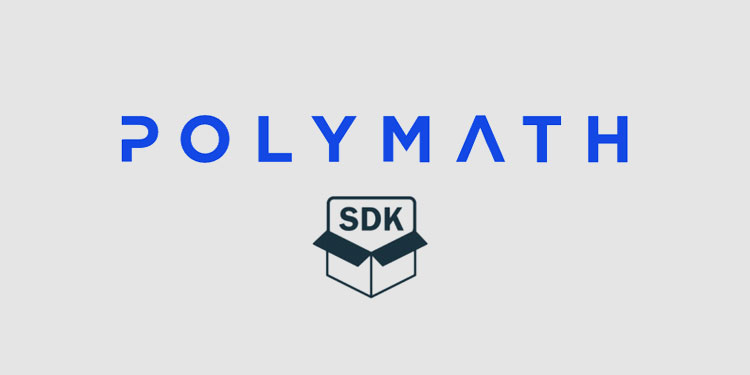Polymath, an end-to-end platform for token issuance and management, announced today it has released supporting documentation for its public SDK.
The Polymath SDK’s main goal is to provide external developers with a set of tools to build powerful applications that interact with the Polymath protocol. The SDK aims to abstract away the complexities of smart contracts (and the blockchain itself). The result is a feature-rich, user-friendly Node.js library.
“We’re excited to get our first release of the documentation out the door and into the hands of the public for feedback. We’ve organized the documentation into tutorials that showcase how to use the SDK from a front-end application. These tools are all open source, allowing institutions to build intuitive interfaces from Polymath’s powerful suite of tools.”
– The Polymath team
What to expect from the documentation…
Token Creation – The first tutorial allows institutions to reserve a token symbol and configure their token details. Configure a token symbol, token name, attach token details with a URL, and specify whether or not the token is divisible.
Token holder Specifications – Institutions can add token holders to the security token that they’ve created. Token holders are Ethereum addresses that are allowed to hold the token based on jurisdictional regulation and modules included in the issuance.
Permissions – Permissions allow for the sharing of administrative access to the security token with others. These delegates can take many forms depending on needs, such as a dividend administrator or token holder administrator, and allow delegates to manage respective duties on your behalf.
Minting – Minting is the process of creating and issuing a security token to specific addresses. Simply specify which addresses to mint to and the number of tokens to mint to them.
STO – This module will allow issuers to set parameters around their security tokens. This may include accredited vs. non-accredited token holder limits, allowing pre-issuances, tiered sales, and more. Tokens can be sold for ETH, POLY, or any stablecoin, and denoted in nearly any fiat currency.


















